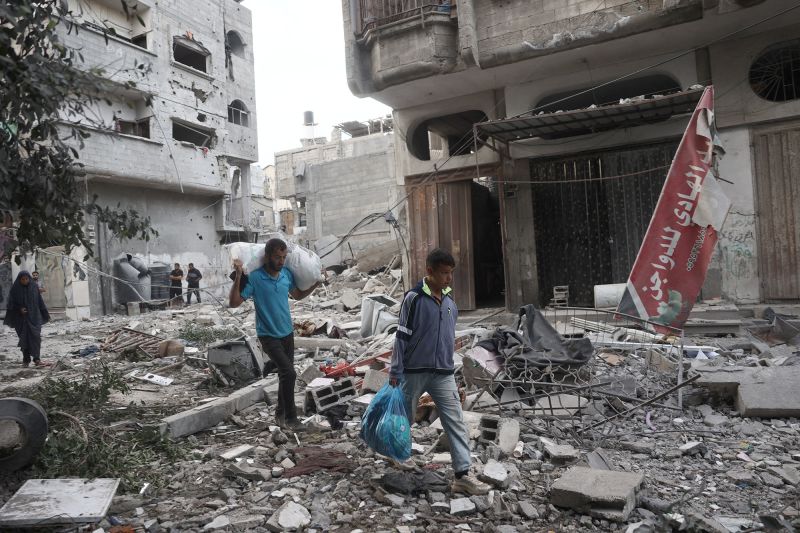
Escalating Tensions: Israel's Strikes in Lebanon and Gaza Intensify
In a troubling escalation of conflict, Israel has ramped up military operations in both Lebanon and Gaza, responding to a series of attacks and retaliatory threats. Recent events have revealed a complex and devastating humanitarian situation, as the conflict’s toll on civilians continues to grow. Reports indicate that Israeli forces have conducted over 1,100 airstrikes in southern Lebanon, claiming significant casualties among Hezbollah fighters, with more than 1,300 reported deaths since the onset of these operations. Prime Minister Benjamin Netanyahu has warned Lebanon of a fate akin to that of Gaza if hostilities persist, further intensifying the stakes in this already volatile region.
On October 9, Israeli airstrikes resulted in the tragic deaths of five members of Lebanon's Civil Defense during an emergency response to calls, raising serious concerns about the safety of humanitarian workers in conflict zones. The Lebanese government condemned these strikes as blatant violations of international humanitarian law, highlighting the dire consequences for emergency services in areas under siege. Such incidents illustrate the severe risks faced by those trying to provide aid amid ongoing violence.
Also Read:- Juraj Slafkovský: The Rising Star with Superstar Potential
- Yankees Stumble Again: Judge and Offense Falter in ALDS Game 2
In the context of these strikes, the humanitarian crisis deepens. With hospitals in Gaza increasingly becoming targets, the situation for civilians is dire. The Israeli Defense Forces (IDF) have ordered evacuations of hospitals in northern Gaza, with claims that these facilities are being misused by Hamas for military purposes. This has led to a catastrophic impact on medical services, where hospitals are already overwhelmed and unable to cope with the influx of casualties. Reports from organizations like Doctors Without Borders indicate that the humanitarian response is collapsing, with thousands of civilians unable to receive basic medical care.
In the political arena, U.S. President Joe Biden recently engaged in a phone call with Netanyahu, the first in nearly two months, signaling continued American support for Israel while pressing for measures to protect civilians. This call comes in the wake of intensified rhetoric and military action, amid rising tensions with Iran and ongoing fears of broader regional instability. Biden emphasized the need for diplomatic solutions, particularly as Israeli ground operations in Lebanon continue to displace thousands, with three-quarters of public schools in Lebanon now turned into shelters for the displaced.
As the conflict rages on, reports emerge of Palestinian civilians facing violence while attempting to flee from renewed military operations in Gaza. Eyewitness accounts detail harrowing experiences of being shot at during their escape, painting a grim picture of life for those caught in the crossfire. This environment of fear and violence extends to journalists as well, with accusations of the IDF targeting media workers, leading to casualties among reporters covering the unfolding crisis.
The current situation is both complex and tragic, reflecting the profound humanitarian impacts of ongoing military engagements in the region. With each passing day, the calls for urgent humanitarian assistance and political resolution grow louder, highlighting the necessity for international attention and intervention. As families continue to be displaced and lives are lost, the world watches closely, hoping for a path toward peace amidst the chaos.
Read More:

0 Comments